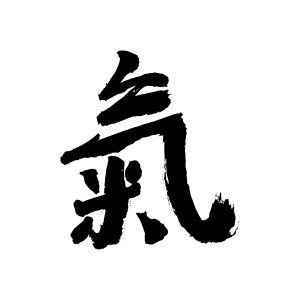I’M A CHRISTIAN — IS ACUPUNCTURE AGAINST MY RELIGION? PART ONE
|

This is a question that I spent years wrestling with myself. Eventually, after consulting with numerous experts, reading dozens of books, and engaging in nearly two decades of study and clinical practice of Chinese medicine, I have come to feel confident that acupuncture is perfectly compatible with Christian faith. Answering this question thoroughly is a tall order and would make for an awfully long article, so I will approach this topic in a three part series:
- In this part I will discuss the Christian call to relieve suffering, answer the question of whether acupuncture is magic or sorcery, and give a thumbnail sketch of Qi, Yin, and Yang and address the common concern that they are Eastern religious concepts that Christians should avoid.
- In part two, I will tell you about the Pope and his acupuncturist and will broach the questions of whether Western medicine is “Christian medicine” and whether it is possible for Christians to derive insight from pagan thinkers.
- In part three, I will compare and contrast the role of doctor and patient in Western versus Eastern medicine and explore whether it might be argued that Chinese medicine takes an approach to health and healing that is more compatible with the Christian worldview than that taken by conventional Western medicine.
Please note that I am a Catholic, so some of what I have to say in this article is specific to that particular faith tradition. The general principles that I will address, however, are pertinent to Christians of all denominations.
CHRISTIANS ARE CALLED TO RELIEVE SUFFERING
As described here and here, I have felt called to the vocation of acupuncturist from the time I was a child. Acupuncture relieved my own suffering when nothing else did and I wanted to extend that same relief to others.
“It should go without saying that Christians have an interest in relieving suffering – an interest that should be far more compelling than any need to remain respectable or “scientific”. Our Lord was hardly respectable during His earthly ministry, and His healings were certainly not scientific if science requires that we understand every detail of God’s “mechanism of action”. Instead, we follow a Lord who was frequently mysterious but always compassionate. Our own compassion should encourage us to explore any healing tool or technique which is both lawful and effective. If a therapy heals the sick and does not violate any ordinance of the Church or Scripture, then it may have a role to play regardless of whether or not we understand exactly how it works.”
– W. Michael Westbrook Baptizing Alternative Medicine: a Guide for the Curious But Cautious Christian
But not all avenues of healing are open to Christians. As stated in the Catechism of the Catholic Church, “All practices of magic or sorcery, by which one attempts to tame occult powers, so as to place them at one’s service and have a supernatural power over others – even if this were for the sake of restoring their health – are gravely contrary to the virtue of religion.” (paragraph 2117, 513-514). So we must ask the question: Does acupuncture constitute the practice of magic or sorcery?
WHAT ARE MAGIC AND SORCERY?
Sorcery and magic represent a violation of the First Commandment (“I am the Lord thy God. Thou shalt not have any gods before me.”) Specifically, they entail an attempt to predict the future or to heal using one’s own power or powers other than those of God. Chinese medicine uses language that is very unfamiliar to the Western mind. Terms such as Qi, Yin, and Yang are so foreign and strange-sounding to Western ears that some Christians are quick to assume that they part and parcel of Eastern religion or have something to do with the “powers other than those of God” about which the Church cautions us. So are Qi, Yin, and Yang “powers other than those of God”? Do an acupuncturist’s attempts to manipulate them for the purpose of healing constitute sorcery or magic? The answer to these questions is a clear “no”, as I will detail below. The terms Qi, Yin, and Yang are simply unfamiliar ways of describing patterns in God’s creation and acupuncture is a means of enhancing and focusing the God-given ability of the human body to heal itself.
ARE QI, YIN, AND YANG EASTERN RELIGIOUS CONCEPTS?
The ancient Chinese people were incredibly astute observers of nature and the concepts of qi, yin, and yang are based on the patterns that they observed in God’s creation.
Qi
“Qi is understood to be the intrinsic, dynamic, self-regulating and self-maintaining power of the organism. All healing in Chinese Medicine is directed, ultimately, at conserving, protecting, augmenting, restoring, and facilitating Qi.”
– Harriet Beinfield and Efrem Korngold, Between Heaven and Earth
Numerous cultures throughout history have identified a “vital energy” as critical for life and health. The Chinese referred to this energy as Qi, the Japanese called it Ki, and in Hebrew the term is Ruach (which can be translated as breath, wind, or spirit). It is this breath of life that God breathed into dust to create man. In human beings, Ruach further denotes an animating dynamic that is characterized by reason, will, and conscience.

The Chinese character for qi is made up of two parts. The upper part represents steam or air. The lower part represents rice that is being cooked. Dr. Jwing-Ming Yang explains that in the character for qi, the ancient Chinese were merely drawing one of the simplest equations in biochemistry:
C6H12O6 (glucose) + 6O2 (air) → 6H2O (water) + 6CO2 (carbon dioxide) + Energy
Qi is not a “new age” spiritual concept, nor is its relevance restricted to Eastern philosophy. It is, in fact, universal. Qi the motive force behind your ability to move, see, hear, heal, digest, speak, love, and dream. It is the “spark” that keeps your heart beating, your blood circulating, and your brain thinking. It is the energy behind the phenomenal growth of a small child and the remarkable ability of the human body to heal from injury and disease. One translation of the word qi is “that which animates life”. According to Chinese medicine, the balanced, unobstructed flow of qi is critical for health.
Yin and Yang
Yin and yang are concepts based on the simple observation of the ancient Chinese people that, in every aspect of Creation, opposite forces are complementary, interconnected, interdependent, and constantly giving rise to one another. For example, day (yang) turns into night (yin), summer (yang) turns into winter (yin), and growth (yang) turns into decay (yin).
Although they are opposites, yin and yang are interdependent forces – one cannot exist without the other. For example, there can be no cold without heat, no shadow without light, no dryness without moisture, no activity without rest, no male without female. In the human body there is both yin qi and yang qi, just as in nature water can exist both in the form of ice (yin) or steam (yang). In the human body (as well as in families, communities, and eco-systems) health is defined as a dynamic balance between yin and yang. Everything in nature can be described in terms of relative proportions of yin and yang.
For example:
“Nowhere is Yin and Yang better expressed than in the ultimate race – the race of sperm to egg. It is difficult to think of a more Yang substance than sperm: it is fast, shaped like a rocket, packed with engines (mitochondria) and even contains an explosive tip. Yang lives fast and dies young. Eggs, however, are the archetype of Yin: they are immobile and fat (an egg is thousands of times bigger than sperm), packed with nutrients, but allow themselves to be wafted through life. They are so passive that they just lie there waiting for sperm to penetrate them, completely incapable of deciding which sperm will succeed. Yin barely lives but lasts forever.”
– Daniel Keown, M.D. The Spark In the Machine
DOES YANG = GOOD AND YIN = EVIL?
You will occasionally hear someone claim that the concept of yin and yang is inherently non-Christian because it implies that good and evil are equal and interdependent forces. This represents a fundamental misunderstanding of the way in which yin and yang are applied in Chinese medicine. Yin is not evil and yang is not good any more than female is evil and male is good or summer is good and winter is evil. In Boolean logic (which is the basis of modern information technology and computing) there are two possible values: true and false or 0 and 1. In a digital data set, 1 does not represent “good” while 0 represents “evil”. In the same way, when Chinese medicine talks about yin and yang, it is simply describing natural phenomena in a completely value-neutral way.
BOTTOM LINE
- Christians are called to relieve suffering.
- Compassion should encourage us to explore any healing tool or technique which is both lawful and effective.
- If a therapy heals the sick and does not violate any ordinance of the Church or Scripture, then it may have a role to play regardless of whether or not we understand exactly how it works.
- Acupuncture works by awakening, strengthening, and focusing the body’s God-given capacity to heal itself, therefore it does not constitute magic or sorcery.
- Qi, yin, and yang are concepts that are foreign to the Western mind, but that does not make them inherently contrary to Christian principles.
- Qi does not have a direct English translation, but the Chinese term carries an association with breath, air, and wind. Ruach is a similar term in Hebrew and denotes the God-given animating dynamic that is characterized by reason, will, and conscience.
- The concept of yin and yang is based on the observation of the ancient Chinese people that, in every aspect of Creation, opposite forces are complementary, interconnected, interdependent, and constantly giving rise to one another.
- Yin and yang are value-neutral ways of describing natural phenomena. Yin is not evil and yang is not good any more than female is evil and male is good or summer is good and winter is evil.
READ ON FOR PART TWO…
In part two, I will tell you about the Pope and his acupuncturist and will broach the questions of whether Western medicine is “Christian medicine” and whether it is possible for Christians to derive insight from pagan thinkers.
